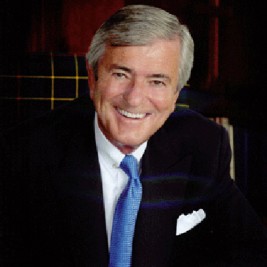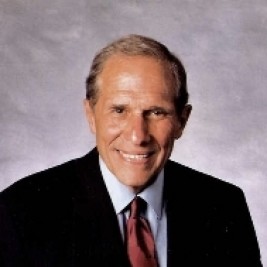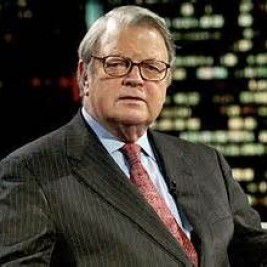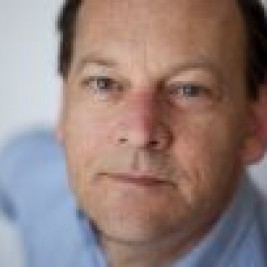
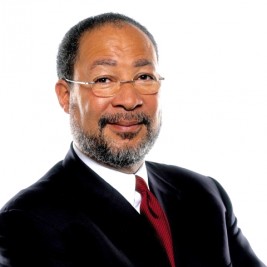
Corporate Appearances, Speaking Engagements, Autograph Signings, Endorsements, VIP Meet & Greets, Store Grand Openings
Book Richard Parsons for a Speaking Engagement
Businesses, Non-profit organizations, event planners and companies across the country have worked closely with our booking agents to hire Richard Parsons for a speaking engagements, guest appearances, product endorsements and corporate events. Many of those same clients have continued to turn to our speakers bureau as we can easily align Richard Parsons’s availability with their upcoming seminar, gala, annual conference, corporate function, and grand opening. Our close relationship with Richard Parsons’s booking agent and management team further enables us to provide inquiring clients with Richard Parsons’s speaking fee and appearance cost.
If your goal is to hire Richard Parsons to be your next keynote speaker or to be the next brand ambassador our celebrity speakers bureau can assist. If Richard Parsons’s booking fee is outside your companies budget or your unable to align with his appearance availability, our booking agents can provide you a list of talent that aligns with your event theme, budget and event date.
Parsons is the current Interim CEO of the Los Angeles Clippers of the NBA.
Served as assistant counsel to Governor Nelson Rockefeller, Albany, NY, 1971-74; called to the New York State Bar, 1972; appointed deputy counsel to the vice president, Washington, DC, 1975; general counsel and associate director of the White House Domestic Council, 1975-77; Patterson, Belknap, Webb & Tyler, New York, NY, attorney, 1977-88, became partner, 1979; Dime Savings Bank of New York, chief operating officer, 1988-90, chairman and chief executive officer, 1990-95; named head of mayor-elect transition council, 1993; served as chairman of New York City's Economic Development Corporation; Time Warner Inc., president, 1995-99; AOL Time Warner, co-chief operating officer, 1999-2002, AOL Time Warner, CEO, 2002.
Richard Parsons has become one of the most prominent figures in American business, without rising through the usual ranks required to reach a high-level corporate position. Named president of Dime Savings Bank of New York in 1988 even though he had no previous experience in the banking industry, he masterminded a turnaround at the bank in just a few years. In the early 1990s he became president of Time Warner Inc., making him one of the most highly ranked African Americans in the corporate United States. In 1999, when AOL and Time Warner merged, parsons became the co-chief operating officer, a position shared with Bob Pittman. In 2001 Parsons was named the successor to AOL Time Warner's CEO, Gerald Levin, who was retired in May of 2002.
Hard work has been a crucial component of the Parsons success story, a value he claims to have learned from his father. As he told Ebony, "I have never missed a single day of work in my life. Never. Not one." Also fueling his rise were connections he has made with important people over the years. "A gregarious and thoughtful man, Mr. Parsons has risen by winning the affection and loyalty of influential mentors," wrote Laurence Zuckerman in the New York Times.
Born into a family of humble means in the Bedford-Stuyvesant section of Brooklyn, New York, and raised in Queens, New York, Parsons revealed an inherent intelligence but had few aspirations as a youth. He graduated high school at the age of 16, then devoted much of his attention to sports as a student at the University of Hawaii. He played varsity basketball there, and was also the social chairman of his fraternity. His journey to future success was given some impetus by his girlfriend at the time, Laura Bush, who became his wife in 1968.
"Left to my own devices, I don't feel any compulsion to strive," he told the New York Times in 1990. "My wife became my focus and the person to whom I owed my best." His plans to become a fighter pilot were redirected to law school largely due to Bush's influence. According to Ebony, Parsons said that "the woman I was dating [Bush] told me, 'You like to argue so much you ought to become a lawyer and get paid for it.'"
At Union University of the University of Albany Law School, Parsons helped pay his way through school by working part-time as a janitor and later as an aide in the State Assembly. He graduated number one in his class of more than 100 students at the age of 23, then received the highest marks among 3,600 lawyers who took the state bar examination in 1971.
Beginning his legal career as an aide on New York governor Nelson Rockefeller's legal staff, Parsons made a very favorable impression on the governor. Governor Rockefeller rewarded Parsons's solid performance by keeping him on his staff when he became vice president under President Gerald Ford in 1974. President Ford also used his services, first as a general council and then as associate director of the domestic council. In the latter post, Parsons focused on drug issues.
Rockefeller's influence on Parsons remained strong and prompted him to become a Republican whose views were liberal on social issues and conservative on economic ones. It also brought Parsons to the attention of high-ranking people who later sought his services. As Parsons said in the New York Times in 1994, "becoming a part of that Rockefeller entourage ... created for me a group of people who've looked out for me ever since." Parsons own concern for the underprivileged has been clearly shown by his work as chairman of the Wildcat Service Corporation, which has provided on-the-job instruction for people whose previous crimes, drug addiction, or poverty have made it difficult to find work.
By the mid-1970s Parsons was noted as a rising star among black professionals, and he was profiled in Black Enterprise's "Under 30 & Moving Up" series in 1975. When departing Deputy Attorney General Harold R. Tyler, Jr., became a partner at a well-established New York City law firm in 1977, he asked Parsons to come on board. Parsons became a partner in just two years at Patterson, Belknap, Webb & Tyler, a move that typically demanded seven years. In his 11 years with the firm, he made his mark in both corporate law and civil litigation. Among his clients were such high-profile figures as Happy Rockefeller and the cosmetics queen Estee Lauder.
Critical to the next chapter in the Parsons success story was his work with the Dimes Saving Bank of New York, which he provided with legal counsel for about six years while with Patterson, Belknap, Webb & Tyler. Just when he seemed poised to become the first black to head a major law firm, shock waves rippled through the New York corporate world in 1988 when Parsons was appointed chief operating officer of the Dime by chairman and CEO Harry Albright, Jr. Before being offered the position, Parsons had never even considered entering the banking business. As he later told Black Enterprise, "My wife talked me into it. She said I needed the change."
Parsons's appointment made him the first black to manage a lending company the size of Dime Savings Bank. "It's a statement by and to corporate America that there are no more areas where African Americans haven't succeeded," he told the New York Times in 1990. Some top officials at the bank questioned his appointment, both because of his lack of experience in the banking industry and his previous work in government that made him likely to leave the company for the political arena. Parsons answered these reservations by promising to devote his full attention to his new $525,000-a-year post. Over the years Parsons has, however, admitted the possibility of entering politics later in life. "It's a venue to which I could see myself returning at some point in time," he told the New York Times in 1994, referring to public service as the "highest calling, large and important work."
Parsons began working at Dime during a difficult period. The bank had suffered a series of losses due to the drastic devaluation of New York City real estate in the late 1980s, and during the previous year it had lost $92.3 million. Parsons also had to deal with an onslaught of unhappy regulators. Under his tutelage the bank staged a remarkable comeback, largely through his massive overhauling of the bank's management systems and work force. In just a few years he reduced the Dime's $1 billion in bad debts to $335 million.
During that time he also earned the respect of the staff for his fair treatment. "Colleagues say Parsons' management style helped smooth the painful layoffs that he had to make," wrote Fonda Marie Lloyd and Mark Lowery in Black Enterprise. "They credit him with keeping employees informed every step of the way, at one point even producing several videos that were distributed to employees." When Albright departed the Dime, Parsons became chairman and CEO. With the bank now on solid financial ground, he engineered a merger with Anchor Savings Bank to create Dime Bancorp in early 1995. The merger created the fourth largest thrift institution in the nation and the largest on the East Coast, with assets worth $20 billion.
In 1993 Parsons was criticized by other blacks for supporting Rudolph Giuliani in the New York City mayoral race, instead of the incumbent Democrat, black mayor David Dinkins. This political stance was consistent with his rejection of the Democrats' philosophy. According to an article in Black Enterprise, Parsons feels that the Democrats believe in taking from one group to give to another one, while the Rockefeller Republicans espouse a policy of equipping a group with skills so that they can achieve what they need on their own. "You can't give something to somebody to have," said Parsons in the same article. "Then, they don't value it. Value is associated with hard work."
After Giuliani was elected, he named Parsons to be head of his transition council. Peter J. Powers, New York City's First Deputy Mayor at the time, complemented Parsons's leadership skills in the New York Times, noting that Parsons "really knows how to bring people together and find common ground." Mayor Giuliani later asked Parsons to become his deputy mayor for Economic Development. Although Parsons refused that position, he consented to work as chairman of the city's Economic Development Corporation.
Admiration for Parsons's skills in the business world resulted in his being courted as a board member for a number of leading companies and institutions, including Time Warner Inc., Philip Morris, Tristar Pictures, Howard University, and the Metropolitan Museum of Art. His involvement with Time Warner resulted in his developing close ties with important company executives such as Robert W. Morgado, the chairman of the Warner Music Group, and Michael J. Fuchs, chairman of HBO. Parsons was asked to become the new president of Time Warner by its chairman, Gerald M. Levin, in the fall of 1994. In the Washington Post, Levin called Parsons "an exceptional business leader with the broad experience, financial acumen and the knowledge of our business that will strengthen and solidify our corporate management."
Parsons accepted the presidency for a reported salary of several million dollars a year. The position placed him second in command over the entire Time Warner holdings in magazine and book publishing, music, film entertainment, theme parks, and cable television. Meanwhile, he answered complaints from colleagues at the Dime that he was deserting them. "This opportunity with Time Warner is a once in a lifetime one. It was either you go for it, or it's gone forever," claimed Parsons in Black Enterprise. "It's not a bad time for me to make a move. I know the bank is in good hands."
The Parsons appointment was not without controversy at Time Warner. He was again entering an industry that was new to him, and some doubted his qualifications. Parsons also inherited a number of problems when he assumed his new post in January of 1995. Time Warner's record division was experiencing difficulty, and company officials were suspicious about the designs of Edgar Bronfman of the Seagram Companies, which owned 15 percent of the company's stock. The conglomerate was also saddled with significant debt. Chief among his tasks since joining Time Warner have been the restructuring of the company's financial and administrative operations, as well as evaluating the responsibilities of artists regarding explicit displays of sex and violence.
Some considered the Parsons appointment at Time Warner to be a significant achievement for black executives, one that helps pave the way for them to enter the highest positions in business. "There are a number of other black executives who have elevated positions in corporate America," said Parsons in Black Enterprise. "The process is rolling forward, even if it isn't moving as fast as some of us would like." Despite his distinction as a high-ranking black in business, Parsons downplays the racial aspects of his success. He has claimed that race was never a "defining character" in his life. "I don't do anything differently than I would otherwise because I have that responsibility to my family," he told the New York Times in 1994. "Whether I was an African-American, an Arab-American, a Jewish-American, or some other American, there are a lot of people who I cannot let down, so you have to live your life a certain way to be a role model to the people who are important to you."
After a yearlong governmental review, Internet company America Online and Time Warner merged in 2001. Parsons was named CEO for AOL Time Warner. The Atlanta Journal-Constitution wrote, "His designation as chief executive of the $36 billion media empire proves that African-Americans can not only perform in positions of commercial leadership but can wildly surpass all expectations." Known for his excellent mediation skills and his ability to put others at ease, Parsons told The Atlanta Journal-Constitution that he is "a lunch pail manager" who will display "an in-the-trenches style of leadership. I like to be with the troops."

Let our team of booking agents help create a memorable experience with hiring Richard Parsons for your store grand opening, golf outing, trade show booth or corporate outing.
NOPACTalent acts as a Celebrity Speakers Bureau and Athlete Booking agency for corporate functions, appearances, private events and speaking engagements. NOPACTalent does not claim or represent itself as Richard Parsons’s speakers bureau, agent, manager or management company for Richard Parsons or any celebrity on this website. NOPACTalent represents organizations seeking to hire motivational speakers, athletes, celebrities and entertainers for private corporate events, celebrity endorsements, personal appearances, and speaking engagements.



